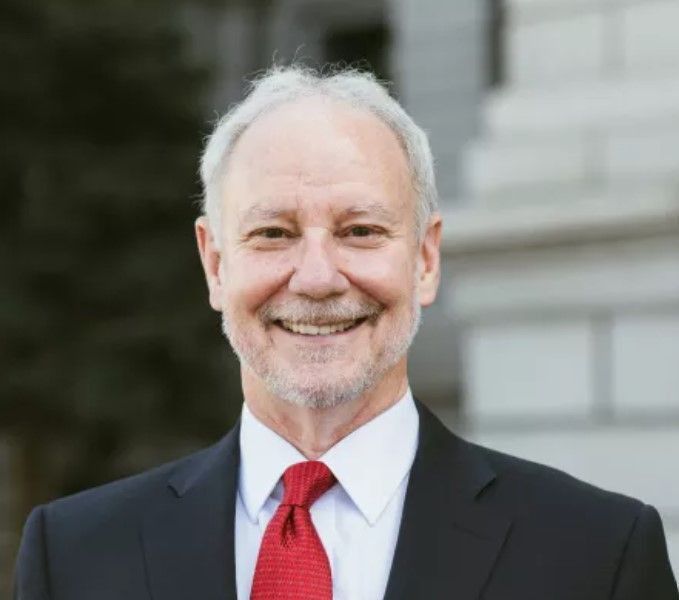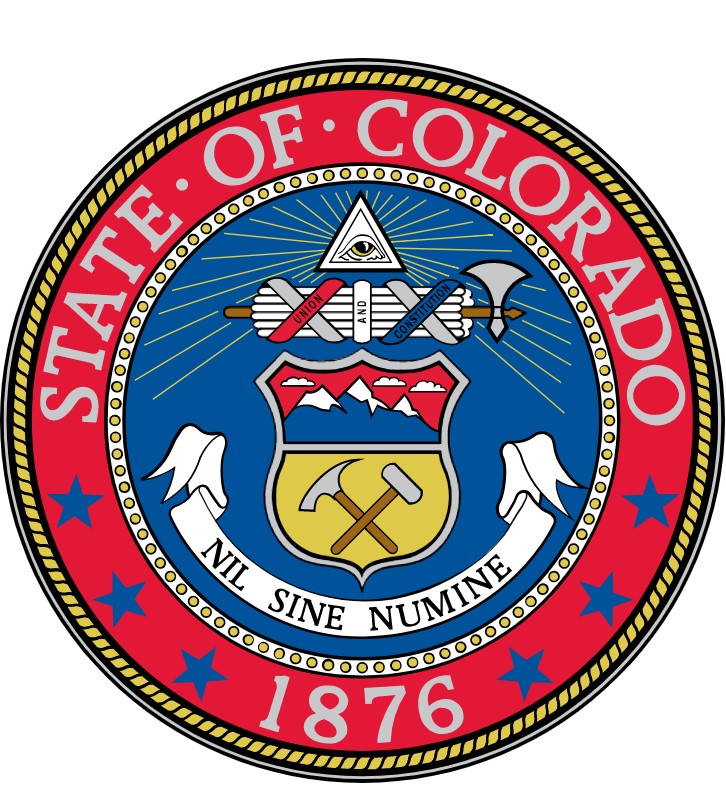Learn about State of Colorado including our News & Press Releases, Projects, and Team.
Talk to us
Have questions? Reach out to us directly.
Learn about State of Colorado including our News & Press Releases, Projects, and Team.
About State of Colorado
- Population (2022 est.)
- 5,890,000
- Notes, Bonds & COPs Outstanding (as of 6/30/2021)
- $5.187 billion
- Total Revenue (FY2022)
- $30.104 billion
Colorado became the 38th state of the United States of America when it was admitted to the union in 1876. Its borders encompass 103,718 square miles of the high plains and the Rocky Mountains, with elevations ranging from 3,315 to 14,433 feet above sea level. The current population of the State is approximately 5.76 million. The State’s major economic sectors include agriculture, professional and business services, manufacturing, technology, tourism, energy production and mining. Considerable economic activity is generated in support of these sectors by government, wholesale and retail trade, transportation, communications, public utilities, finance, insurance, real estate and other services
The State Constitution provides that the State Treasurer is to be the custodian of public funds in the State Treasurer’s care, subject to legislative direction concerning safekeeping and management of such funds. The State Treasurer is the head of the statutorily created Department of the Treasury (the “State Treasury”), which receives all State moneys collected by or otherwise coming into the hands of any officer, department, institution or agency of the State (except certain institutions of higher education). The State Treasurer deposits and disburses those moneys in the manner prescribed by law. Every officer, department, institution and agency of the State (except for certain institutions of higher education) 34 charged with the responsibility of collecting taxes, licenses, fees and permits imposed by law and of collecting or accepting tuition, rentals, receipts from the sale of property and other moneys accruing to the State from any source is required to transmit those moneys to the State Treasury under procedures prescribed by law or by fiscal rules promulgated by the Office of the State Controller. The State Treasurer and the State Controller may authorize any department, institution or agency collecting or receiving State moneys to deposit such moneys to a depository to the State Treasurer’s credit in lieu of transmitting such moneys to the State Treasury.
Image Gallery





News
New York, January 02, 2025 – Moody’s Ratings (Moody’s) has assigned a MIG 1 rating to the State of Colorado’s $475 million Education Loan Program Tax and Revenue Anticipation Notes, Series 2024B (ETRANs). We maintain an Aa1 Issuer Rating for the state, with a stable outlook.
RATINGS RATIONALE
The MIG 1 rating on the ETRANs reflects the state’s long-term credit quality, the strengths of the Education Loan Program’s mechanics which include oversight of participating school districts by the state, and the State Treasurer’s commitment to utilize the state’s available liquidity to support full and timely repayment of the notes, if necessary. These available liquidity, including State Education Fund, State Highway Fund, and borrowable General Fund, have a projected balance of $3.8 billion by June 2025 that can cover the Series 2024A&B ETRANs by close to 4 times.
The State of Colorado’s Aa1 issuer rating reflects its strong economic growth with a 5-year compound annual growth rate of real GDP exceeding the US by 120 basis points, above average per capita income representing 112.6% of the US, and favorable demographic trends. The issuer rating considers the state’s constraints on budgetary flexibility, relative to other states, given constitutional restrictions, but somewhat mitigated by the state’s prudent fiscal management. The issuer rating also incorporates the state’s solid reserves, which are anticipated to be maintained; we expect that the state will enact proactive measures to address a projected budget gap in fiscal 2026 largely stemming from slower revenue growth and higher-than-expected healthcare caseload spending. Colorado’s direct leverage is moderate at 131.5% of own source revenue as of fiscal year 2023, as is its fixed cost burden at 5.2% of own source revenue. However, the state is indirectly exposed to sizable teacher pension liabilities reported on school districts’ balance sheets. Including these indirect liabilities, the state’s total liability ratio nearly doubles to 258% of own source revenue as of fiscal year 2023.
RATING OUTLOOK
The stable outlook for long-term ratings reflect the expectation that the state’s strong economic fundamentals and sound fiscal management will continue to support healthy financials, including maintaining general fund reserve at around 15% of appropriations. Long-term liabilities are expected to remain moderate with proactive management.
Outlooks are not assigned to short-term ratings.
FACTORS THAT COULD LEAD TO AN UPGRADE OF THE RATING
All long-term ratings:
- Voter actions that enhance the state’s flexibility to increase available revenue when needed
- Sustained improvement in teacher pension funding leading to a reduction in total (direct and indirect) liabilities to comparably rated states’ median
ETRANs short-term rating:
- Not applicable
FACTORS THAT COULD LEAD TO A DOWNGRADE OF THE RATING
Issuer ratings:
- A sustained structural imbalance leading to a weakening of financial reserves and liquidity
- Protracted weakening of the state’s generally strong economic fundamentals and demographic trends
- Substantial weakening of annual teacher pension contributions
ETRANs short-term rating:
- A rapid and unanticipated material deterioration of the state’s liquidity and long-term credit quality
LEGAL SECURITY
The Series 2024B ETRANs are on parity with the state’s $500M 2024A ETRANs issued in July 2024. The Series 2024A&B ETRANs are secured by loan payments made to the state treasurer by the school districts participating in the state’s Education Loan Program. The payments are due on or before June 25, 2025 and are secured by a priority lien on each district’s property tax receipts attributed to its General Fund in fiscal 2025 and received in March through June of 2025.
Pledged tax receipts are required to be remitted to the state treasurer within one business day of receipt by the district. Participant loan payments have typically been made by mid-May, well in advance of the June 25 payment due date and the June 30 note maturity date. The note repayment account is held by the paying agent. The participant loans are interest free. Interest on the ETRANs is paid from an interest subaccount funded at closing by the state Treasurer from General Fund revenues. The state Treasurer covenants to remedy any shortfall in the note repayment account using other available state funds. If there is a deficiency in the note repayment account, the state Treasurer will backfill the shortfall by investing legally available state funds in district loans in advance of the June 30, 2025 maturity, first using available monies in the state’s Education Fund and followed thereafter by monies in its Highway Fund. The state projects that the June 30, 2025, balance in the two funds combined will exceed $1.6 billion.
Additionally, the state Treasurer may utilize borrowable resources from over 600 other supplemental funds and the General Fund, all of which provide substantial additional liquidity to support timely repayment of the notes. The supplemental funds are the same funds which provide supplemental liquidity, if needed, for any General Fund Tax and Revenue Anticipation Notes (GTRANs) issued. The use of the General Fund and other borrowable funds for the ETRANs is subordinate to the use of these fund to repay the GTRANs. The state currently does not plan to issue GTRANs for fiscal year 2025. The state projects that the balance in the General Fund alone will exceed $2.1 billion by June 30, 2025.
USE OF PROCEEDS
The Series 2024B ETRANs are issued to provide cash flow loans to participating school districts under the Education Loan Program for fiscal year 2025 (ending June 30, 2025).
PROFILE
Colorado is the 21st largest state by population, at 5.9 million. Its nominal gross domestic product, $520.4 billion as of 2023, is the 16th largest. Income levels are above average–the state’s per capita personal income is equal to 112.6% of the US level and its poverty level is among the lowest in the nation.
METHODOLOGY
The principal methodology used in this rating was US Municipal Short-term Debt published in October 2024 and available at https://ratings.moodys.com/rmc-documents/430699. Alternatively, please see the Rating Methodologies page on https://ratings.moodys.com for a copy of this methodology.
REGULATORY DISCLOSURES
For further specification of Moody’s key rating assumptions and sensitivity analysis, see the sections Methodology Assumptions and Sensitivity to Assumptions in the disclosure form. Moody’s Rating Symbols and Definitions can be found on https://ratings.moodys.com/rating-definitions.
For any affected securities or rated entities receiving direct credit support/credit substitution from another entity or entities subject to a credit rating action (the supporting entity), and whose ratings may change as a result of a credit rating action as to the supporting entity, the associated regulatory disclosures will relate to the supporting entity. Exceptions to this approach may be applicable in certain jurisdictions.
For ratings issued on a program, series, category/class of debt or security, certain regulatory disclosures applicable to each rating of a subsequently issued bond or note of the same series, category/class of debt, or security, or pursuant to a program for which the ratings are derived exclusively from existing ratings, in accordance with Moody’s rating practices, can be found in the most recent Credit Rating Announcement related to the same class of Credit Rating.
For provisional ratings, the Credit Rating Announcement provides certain regulatory disclosures in relation to the provisional rating assigned, and in relation to a definitive rating that may be assigned subsequent to the final issuance of the debt, in each case where the transaction structure and terms have not changed prior to the assignment of the definitive rating in a manner that would have affected the rating.
Moody’s does not always publish a separate Credit Rating Announcement for each Credit Rating assigned in the Anticipated Ratings Process or Subsequent Ratings Process.
Regulatory disclosures contained in this press release apply to the credit rating and, if applicable, the related rating outlook or rating review.
Please see https://ratings.moodys.com for any updates on changes to the lead rating analyst and to the Moody’s legal entity that has issued the rating.
Please see the issuer/deal page on https://ratings.moodys.com for additional regulatory disclosures for each credit rating.
Xing Chen Zhu
Lead Analyst
Henrietta Chang
Additional Contact
Releasing Office:
Moody’s Investors Service, Inc.
250 Greenwich Street
New York, NY 10007
U.S.A
JOURNALISTS: 1 212 553 0376
Client Service: 1 212 553 1653
Please click the link below to access the Treasurer’s press releases
Projects
Team

Dave Young

James Eke
Talk to us
Have questions? Reach out to us directly.


